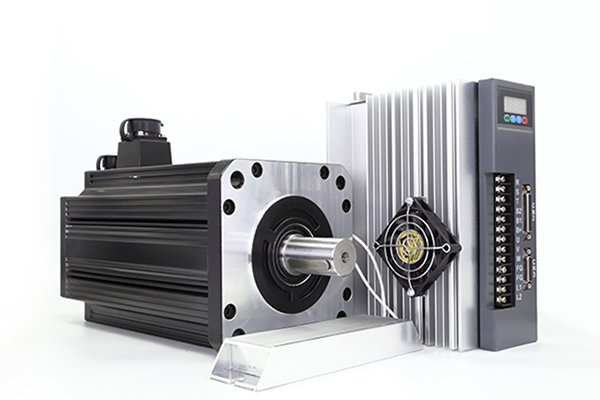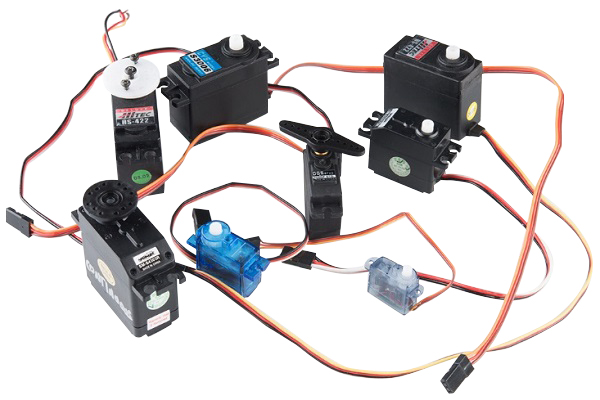How to Test Servo Motor?
Servo motors are devices that convert electrical signals into mechanical motion and are widely used in industrial automation, robotics, aerospace and other fields. In order to ensure the stability and performance of servo motors, a series of test methods are required. In this paper, we will introduce the test methods of servo motors and elaborate each test step in detail. The test methods of servo motors mainly include two parts: static test and dynamic test.

1. Static Test:
Static test is mainly used to test the static performance of the servo motor, including the static characteristics of the motor, static response and so on. The following are the steps of static test:

Dynamic testing is mainly used to test the dynamic performance of servo motors, including the dynamic response of the motor, speed control performance and so on. The following are the steps of dynamic testing:


1. Static Test:
Static test is mainly used to test the static performance of the servo motor, including the static characteristics of the motor, static response and so on. The following are the steps of static test:

- Static Characterization Test. By applying different voltages or currents to a servo motor, the motor's speed, torque, power and other parameters are measured to obtain the motor's static characteristic curve. This can help us to evaluate the performance and stability of the servo motor.
- Static Response Test. By applying a step signal to a servo motor, the motor's output response time, overshoot, and other parameters are measured to evaluate the dynamic responsiveness of the motor. This is important for applications that require fast response.
- Position Control Test. The position control accuracy of a motor is evaluated by applying a position command to the servo motor and measuring the position tracking error of the motor. This is critical for applications that require precise position control.
Dynamic testing is mainly used to test the dynamic performance of servo motors, including the dynamic response of the motor, speed control performance and so on. The following are the steps of dynamic testing:

- Dynamic Response Test. The dynamic responsiveness of a motor is evaluated by applying a sinusoidal or pulsed signal to the servomotor and measuring the motor's output response time, frequency response, and other parameters. This is important for applications that require a fast and accurate response.
- Speed Control Test. The speed control accuracy of a servo motor is evaluated by applying a speed command to the servo motor and measuring the motor's speed tracking error. This is critical for applications that require precise speed control.
- Acceleration Control Test. The acceleration control capability of a motor is evaluated by applying an acceleration command to the servo motor and measuring the acceleration performance of the motor. This is important for applications that require rapid acceleration and deceleration.
- Test Environment. Ensure the stability and accuracy of the test environment and avoid the influence of external factors on the test results. For example, avoid power fluctuation and temperature change during testing.
- Measuring Equipment. Choose suitable measuring equipment, such as tachometer, ammeter, position sensor, etc., to ensure the accuracy and reliability of the measurement results.
- Test Parameters. choose suitable test parameters according to actual demand, such as voltage, current, position command, speed command, etc., to ensure that the test results have reference value.
- Data Analysis. Analyze the data of the test results, draw curve diagrams, calculate indicators, etc., so as to draw conclusions on the assessment of servo motor performance.
Post a Comment:
You may also like:

Category
Featured Articles
What is a Servo Motor?
 There are some special types of application of electrical motor where rotation of the motor is required for just a certain angle ...
There are some special types of application of electrical motor where rotation of the motor is required for just a certain angle ...
 There are some special types of application of electrical motor where rotation of the motor is required for just a certain angle ...
There are some special types of application of electrical motor where rotation of the motor is required for just a certain angle ...How to Select the Suitable Power ...
 It's important to consider the unique demands of a motion control application when selecting a power supply. During ...
It's important to consider the unique demands of a motion control application when selecting a power supply. During ...
 It's important to consider the unique demands of a motion control application when selecting a power supply. During ...
It's important to consider the unique demands of a motion control application when selecting a power supply. During ...What are the Types of Servo Motor?
 There are some special types of application of electrical motor where rotation of the motor is required for just a certain angle ...
There are some special types of application of electrical motor where rotation of the motor is required for just a certain angle ...
 There are some special types of application of electrical motor where rotation of the motor is required for just a certain angle ...
There are some special types of application of electrical motor where rotation of the motor is required for just a certain angle ...How to Maintain Servo Motor?
 Servo motors play a crucial role in various industries, serving as precision control devices in applications ranging from ...
Servo motors play a crucial role in various industries, serving as precision control devices in applications ranging from ...
 Servo motors play a crucial role in various industries, serving as precision control devices in applications ranging from ...
Servo motors play a crucial role in various industries, serving as precision control devices in applications ranging from ...How to Test Servo Motor?
 Servo motors are devices that convert electrical signals into mechanical motion and are widely used in industrial automation, ...
Servo motors are devices that convert electrical signals into mechanical motion and are widely used in industrial automation, ...
 Servo motors are devices that convert electrical signals into mechanical motion and are widely used in industrial automation, ...
Servo motors are devices that convert electrical signals into mechanical motion and are widely used in industrial automation, ...